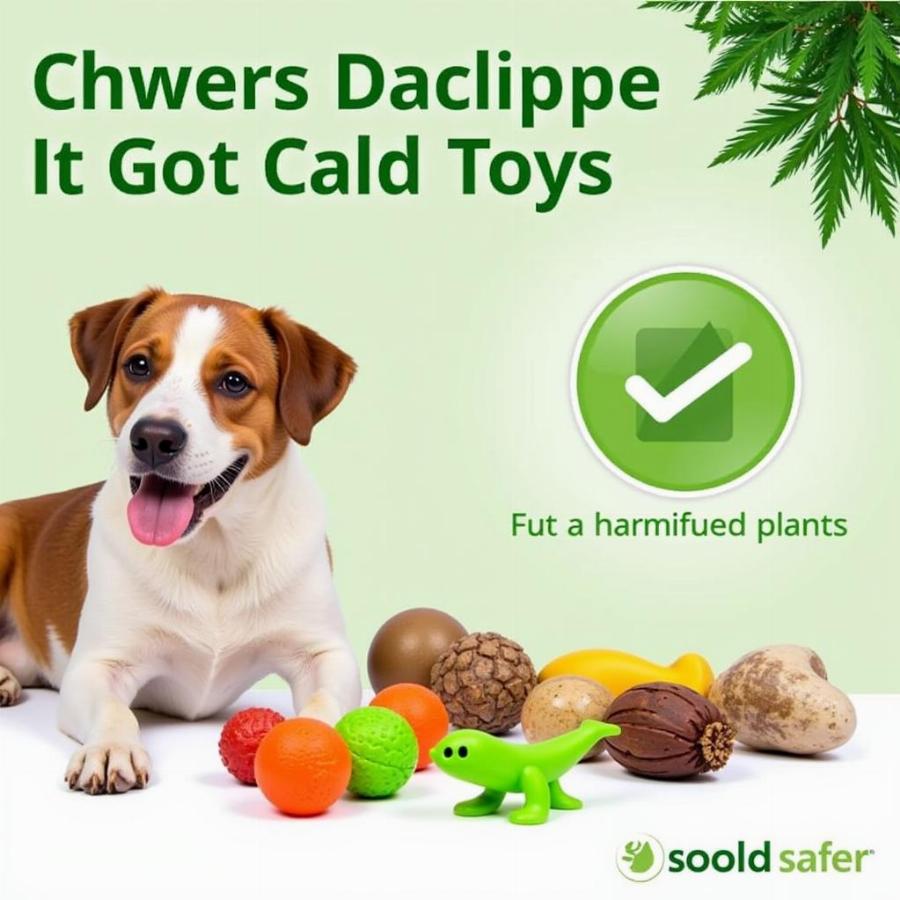Hibiscus toxicity in dogs is a topic that often raises concerns for pet owners. While hibiscus plants are generally considered to have low toxicity, understanding the potential risks and symptoms is crucial for keeping your canine companion safe. This article will explore the potential dangers of hibiscus for dogs, the symptoms of hibiscus poisoning, and what to do if you suspect your dog has ingested part of a hibiscus plant.
Is Hibiscus Really Toxic to Dogs?
The toxicity of hibiscus in dogs is generally mild. Most varieties of hibiscus pose little threat, but certain species, like the Rose of Sharon (Hibiscus syriacus), can be more problematic. The level of toxicity also depends on the amount ingested. While a few nibbles might cause mild gastrointestinal upset, larger quantities can lead to more severe symptoms. So, are hibiscus toxic to dogs? The answer isn’t a simple yes or no; it depends on the variety and the amount consumed. It’s always best to err on the side of caution and keep hibiscus plants out of your dog’s reach.
Signs of Hibiscus Poisoning in Dogs
What are the signs your dog has ingested a potentially harmful amount of hibiscus? Common symptoms include vomiting, diarrhea, loss of appetite, and nausea. In more severe cases, you might observe tremors, weakness, or even changes in their behavior. If your dog exhibits any of these symptoms after being near a hibiscus plant, it’s important to contact your veterinarian immediately.
What to Do if Your Dog Eats Hibiscus
If you suspect hibiscus toxicity in dogs, act quickly. First, remove any remaining plant material from your dog’s reach. Next, try to determine how much of the plant they ingested. This information will be helpful for your veterinarian. Contact your vet or an animal poison control center as soon as possible. They can advise you on the best course of action based on your dog’s breed, size, and the amount of hibiscus consumed.
Preventing Hibiscus Ingestion
Prevention is always the best medicine. The easiest way to prevent hibiscus toxicity in dogs is to keep these plants out of their reach. If you have hibiscus plants in your garden, consider fencing them off or placing them in hanging baskets. Train your dog to “leave it” when they approach potentially harmful plants. Providing plenty of dog-friendly toys and activities can also help distract them from chewing on plants.
Are All Hibiscus Plants Toxic?
While the Rose of Sharon is known to be more problematic, it’s essential to remember that any variety of hibiscus can potentially cause gastrointestinal upset in dogs, especially if ingested in large quantities. Therefore, even if you have a variety that’s considered less toxic, it’s still safest to prevent your dog from accessing it. This proactive approach eliminates the risk of hibiscus toxicity in dogs altogether.
 Dog playing with safe toys instead of plants
Dog playing with safe toys instead of plants
Hibiscus Toxicity in Dogs: FAQs
- What part of the hibiscus plant is toxic to dogs? All parts of the plant, including the flowers, leaves, and stems, can be potentially toxic.
- Can hibiscus tea harm my dog? Hibiscus tea is generally made from the flowers of the Hibiscus sabdariffa, which is considered less toxic. However, it’s best to avoid giving your dog any kind of tea that isn’t specifically formulated for pets.
- How long after eating hibiscus will a dog show symptoms? Symptoms can appear anywhere from a few minutes to several hours after ingestion.
- Is there an antidote for hibiscus poisoning in dogs? There’s no specific antidote. Treatment typically focuses on managing the symptoms and providing supportive care.
- Are there flowers safe for dogs to be around? Yes! Check out our article on flowers safe for dogs to create a pet-friendly garden.
Related Questions and Further Reading
- For a comprehensive list of plants that are toxic to dogs, consider visiting our article: is the hibiscus plant poisonous to dogs.
- Concerned about other potential garden hazards? Learn more about are roses toxic to dogs.
- Want to know more about hibiscus specifically? Read our article about hibiscus plant toxic to dogs for a deeper dive.
- Have other questions about dog safety around plants? Learn more about which plants are toxic with this article: are hibiscus toxic to dogs
Conclusion
While hibiscus toxicity in dogs is usually mild, it’s crucial to take precautions and monitor your pet. By understanding the potential risks and symptoms, you can create a safe and enjoyable environment for your furry friend. Remember, prevention is always better than cure. Keep hibiscus plants out of reach and contact your veterinarian immediately if you suspect your dog has ingested any part of a hibiscus plant.
Beaut Dogs is your one-stop resource for all things dog-related, providing reliable and in-depth information about the canine world. From breed characteristics to health and training tips, we’re here to help you become the best pet parent possible. When in need of assistance regarding hibiscus toxicity, contact Email: [email protected] to receive detailed and accurate guidance from Beaut Dogs. Visit https://beautdogs.com to explore the fascinating world of dogs and learn how to provide the best care for your furry companion.